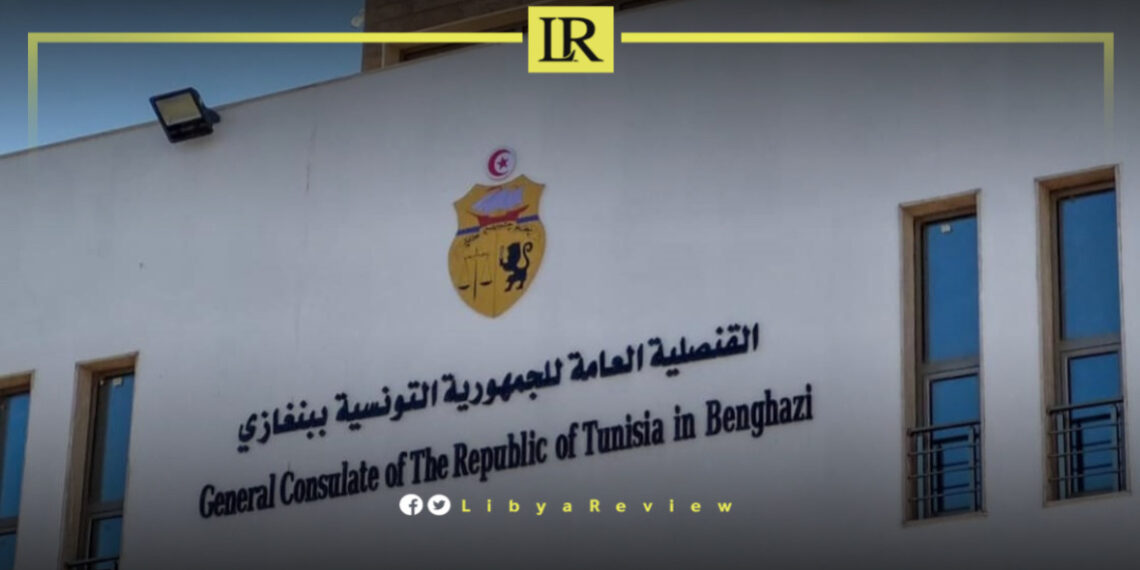On Wednesday, Tunisia reopened its consulate in Benghazi for the first time in 10 years. The Tunisian flag was raised over the consulate building in the city, marking the official resumption of operations after more than a decade of closure. The decision reflects confidence in the improving security and stability across Benghazi and other Libyan cities.
Announced by Libya’s Parliament-appointed Prime Minister, Osama Hammad, and the Ministry of Foreign Affairs and International Cooperation, this development underscores the strengthening of bilateral ties between Libya and Tunisia.
Tunisian officials have expressed their commitment to enhancing cooperation with Libya, particularly in trade, investment, and workforce mobility.
The reopening of the consulate follows months of preparation by Tunisia’s Ministry of Foreign Affairs. It is seen as a response to repeated calls from the Tunisian community in eastern Libya, who have long demanded the restoration of consular services to address their needs.
This milestone also reflects Benghazi’s remarkable progress after years of conflict and instability. Following Libya’s 2011 revolution, the city became a hotspot for unrest and violence. However, sustained efforts to rebuild infrastructure and restore order have transformed Benghazi into a symbol of recovery and resilience, paving the way for renewed diplomatic activity.
Libya and Tunisia share strong historical, cultural, and economic ties. Tunisia’s decision to reopen its consulate is expected to deepen these connections, facilitating trade and investments while enabling Tunisian workers to contribute to Libya’s reconstruction efforts. The restored consular services will also provide vital support to Libyan-Tunisian families and businesses operating in the region.
As Libya continues its journey toward stability, the reopening of Tunisia’s consulate in Benghazi serves as a testament to the progress achieved and the optimism surrounding the nation’s future. This step marks a significant milestone in the partnership between the two countries, reflecting a shared vision for security, prosperity, and regional cooperation.


